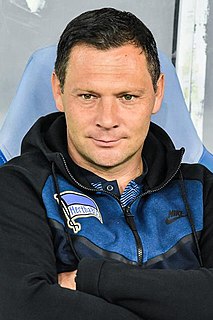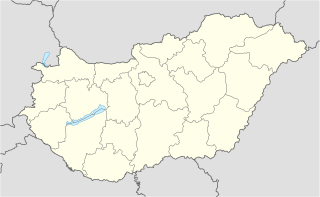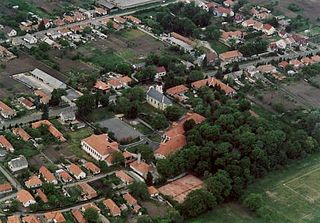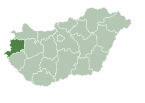
Central Europe is the central region of Europe. Central Europe includes contiguous territories that are sometimes also considered parts of Western Europe, Southern Europe and Eastern Europe. The concept of Central Europe is based on a common historical, social and cultural identity and is a patchwork of territories that are traditionally Catholic and Protestant. The Thirty Years' War between Catholicism and Protestantism was a significant shaping process in the history of Central Europe, and neither side was able to prevail in the region as a whole.

Hungary is a landlocked country in Central Europe. Spanning 93,030 square kilometres (35,920 sq mi) of the Carpathian Basin, it is bordered by Slovakia to the north, Ukraine to the northeast, Romania to the east and southeast, Serbia to the south, Croatia and Slovenia to the southwest, and Austria to the west. Hungary has a population of 10 million, mostly ethnic Hungarians and a significant Romani minority. Hungarian, the official language, is the world's most widely spoken Uralic language, and among the few non-Indo-European languages widely spoken in Europe. Budapest is the country's capital and largest city; other major urban areas include Debrecen, Szeged, Miskolc, Pécs, and Győr.

Hungary wields considerable influence in Central and Eastern Europe and is a middle power in international affairs. The foreign policy of Hungary is based on four basic commitments: to Atlantic co-operation, to European integration, to international development and to international law. The Hungarian economy is fairly open and relies strongly on international trade.

Budapest is the capital and the most populous city of Hungary, and the ninth-largest city in the European Union by population within city limits. The city has an estimated population of 1,752,286 over a land area of about 525 square kilometres. Budapest is both a city and county, and forms the centre of the Budapest metropolitan area, which has an area of 7,626 square kilometres and a population of 3,303,786, comprising 33% of the population of Hungary.

Viktor Mihály Orbán is a Hungarian politician who has been Prime Minister of Hungary since 2010; he was also Prime Minister from 1998 to 2002. He has also been President of Fidesz, a national conservative political party, since 1993, with a brief break between 2000 and 2003.

Pál Dárdai is a Hungarian retired footballer who played mainly as a defensive midfielder, and current coach of German club Hertha BSC.

Alsóregmec is a village in Borsod-Abaúj-Zemplén county, Hungary.

Bodrogolaszi is a village in Borsod-Abaúj-Zemplén county, Hungary.

Gelej is a village in Borsod-Abaúj-Zemplén county, Hungary.

Gesztely is a village in Borsod-Abaúj-Zemplén county, Hungary.

Rudolftelep is a village in Borsod-Abaúj-Zemplén county, Hungary.

Tard is a village in Borsod-Abaúj-Zemplén county, Hungary.

Bódvaszilas is a village in Borsod-Abaúj-Zemplén county, Hungary.

Göncruszka is a village in Borsod-Abaúj-Zemplén county, Hungary.

Hidvégardó is a village in Borsod-Abaúj-Zemplén County in northeastern Hungary. It contains the northernmost point of Hungary.

Mezőnyárád is a village in Borsod-Abaúj-Zemplén County in northeastern Hungary.

Oszlár is a village in Borsod-Abaúj-Zemplén County in northeastern Hungary.

Sajóhídvég is a village in Borsod-Abaúj-Zemplén County in north-eastern Hungary.

Hungary competed at the 2016 Summer Olympics in Rio de Janeiro, Brazil, from 5 to 21 August 2016. Hungarian athletes have appeared in every edition of the Summer Olympic Games, except for two occasions. Hungary was not invited to the 1920 Summer Olympics in Antwerp, because of its role in the first World War, and it was also part of the Soviet boycott, when Los Angeles hosted the 1984 Summer Olympics.

In 2015, Hungary built a border barrier on its border with Serbia and Croatia. The fence was constructed during the European migrant crisis, with the aim to ensure border security by preventing illegal immigrants from entering, and enabling the option to enter through official checkpoints and claim asylum in Hungary in accordance with international and European law. The number of illegal entries to Hungary declined greatly after the barrier was finished as it effectively abolished the access to asylum in Hungary.




















